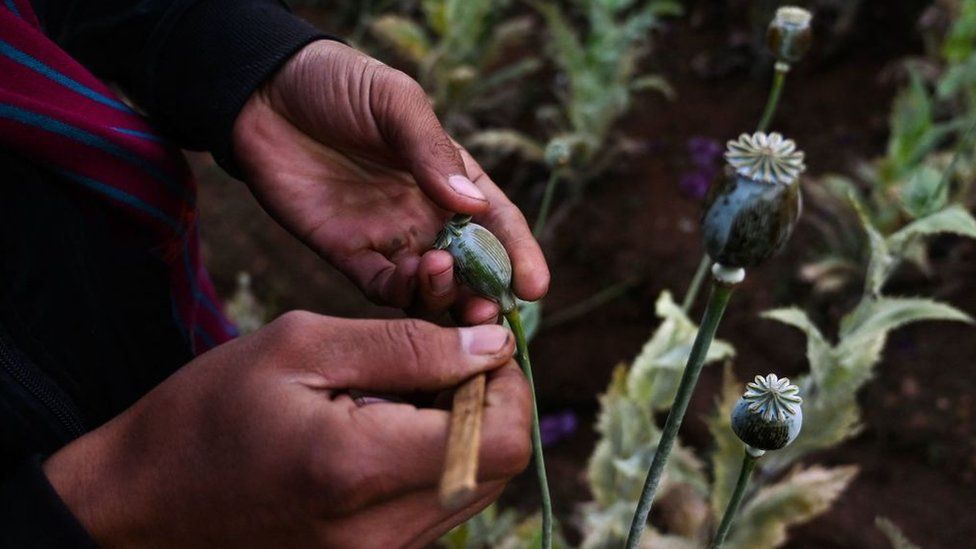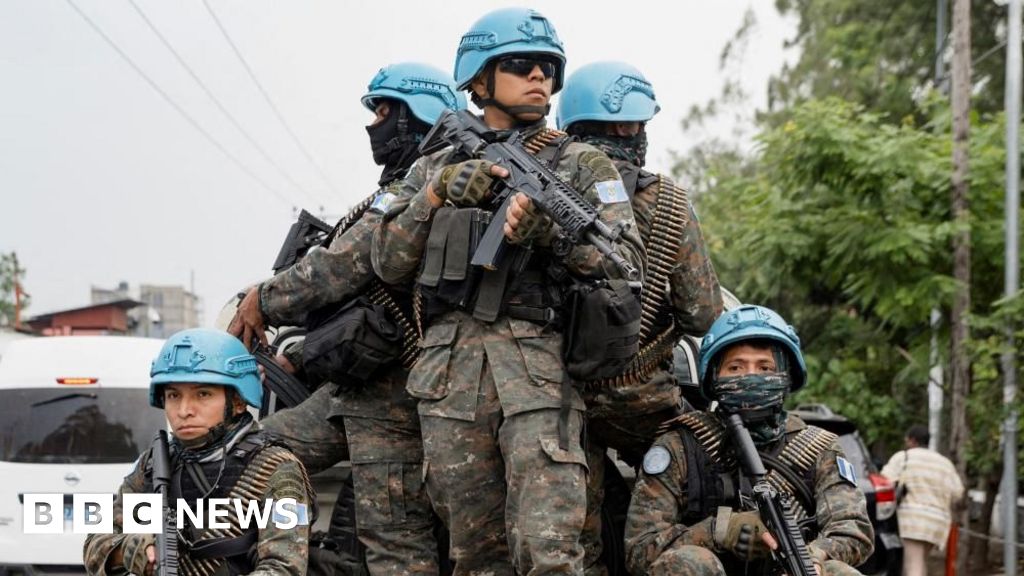ARTICLE AD BOX
 Image source, Getty Images
Image source, Getty Images
In 2023, the area under poppy cultivation in Myanmar is estimated to be 47,000 ha - an 18% rise compared with last year
Myanmar is now the world's largest producer of opium, overtaking Afghanistan, a UN report says.
It estimates that this year Myanmar will have increased production by 36% to 1,080 tonnes of opium - the key ingredient for the hard drug heroin.
The main factors are domestic instability and a 95% drop in poppy cultivation in Afghanistan after a drug ban by the ruling Taliban last year.
Afghanistan is estimated to have produced 330 tonnes of opium this year.
The report by the United Nations Office for Drugs and Crime (UNODC) says Myanmar's economy has been badly affected by conflict and instability since the military seized power in 2021.
"Limited availability of legitimate economic opportunities, constrained access to markets and state infrastructure, and a worsening economic climate brought on by inflation and monetary depreciation can make opium, as well as other illicit commodities, an attractive alternative or for subsistence livelihoods.
"In Myanmar, this appears to have played a significant role in farmers' decisions in late 2022 to cultivate more poppy," the report says.
The average prices at harvest time of fresh and dry opium have risen to $317 and $356 per kilogram.
In 2023, the document adds, the area under poppy cultivation in Myanmar (also known as Burma) is estimated to be 47,000 ha (116,140 acres) - an 18% rise compared with last year.
The region where the borders of Myanmar, Thailand and Laos meet - the so-called Golden Triangle - has historically been a major source of opium and heroin production.
Myanmar and Afghanistan are the source of most of the heroin sold around the world.

 1 year ago
21
1 year ago
21








 English (US) ·
English (US) ·